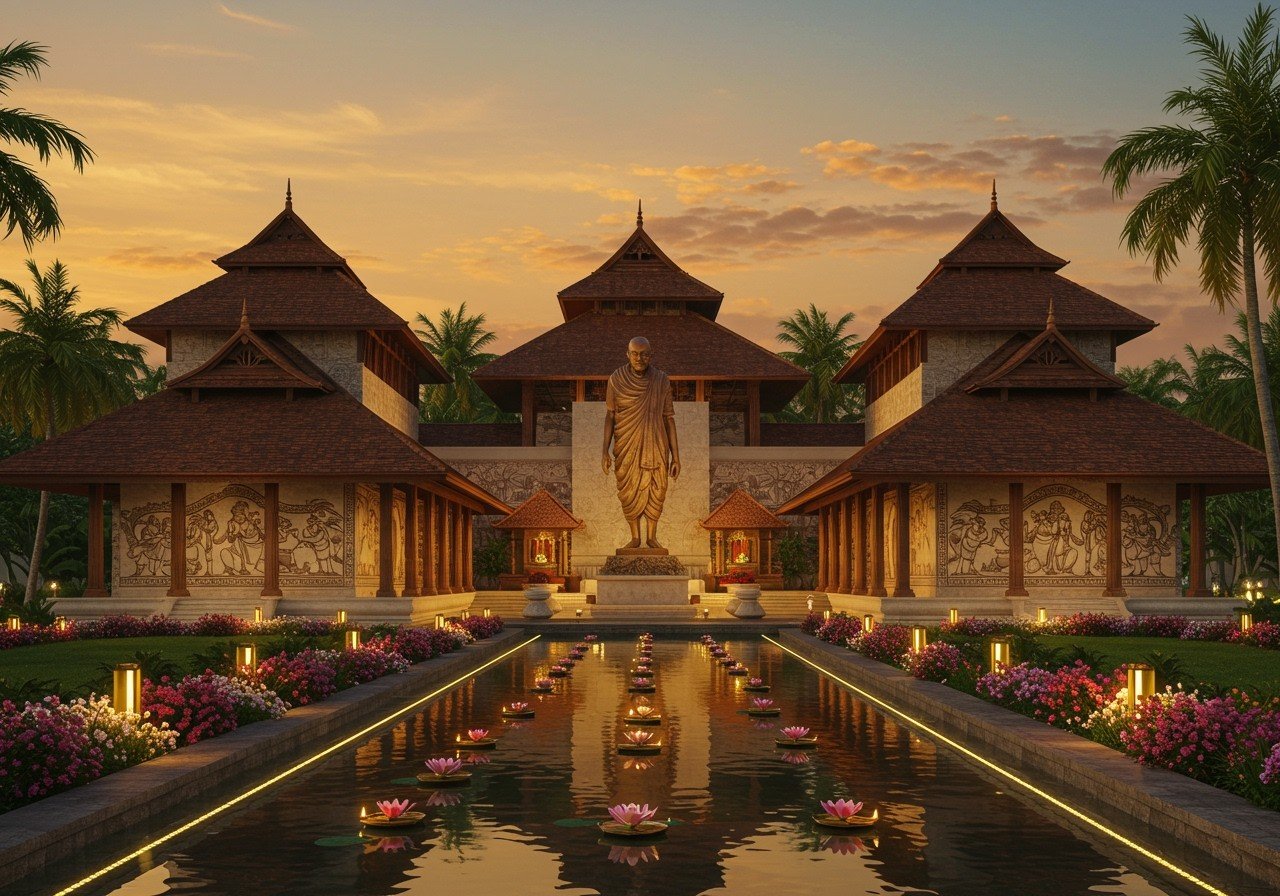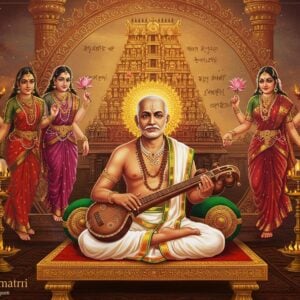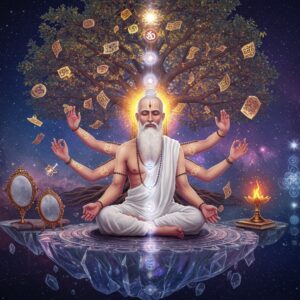
The Ezhava Memorial stands as a powerful symbol of the Ezhava community’s fight for equality and social justice in Kerala. This historic event, which took place in 1896, is a cornerstone of the social reform movement in the region. It represents a determined effort to challenge caste-based discrimination and advocate for equal opportunities in education and employment.
Historical Context of Ezhavas
In the late 19th and early 20th centuries, the Ezhavas, who constitute approximately 23% of Kerala’s population, faced deep-rooted systemic oppression. Considered outside the Brahmanical Varna system, they were denied basic rights and suffered social ostracism. Their traditional occupations included agricultural labor, toddy tapping, and some were even warriors skilled in the martial art of Kalaripayattu.
- Origins: Several theories exist about the origins of the Ezhava community. Some believe they descended from Thevarada Buddhists who migrated from Sri Lanka, invited by the Chera king to spread Buddhism and support the army. Others suggest they were skilled coconut farmers or martial families sent from Sri Lanka at the Chera king’s request.
- Social Status and Occupation: Historically, Ezhavas faced discrimination within the traditional Hindu caste system and were considered “untouchable.” They held various occupations, including agricultural laborers, toddy tappers, weavers, Ayurveda practitioners, and warriors trained in Kalaripayattu.
The British colonial era, while presenting challenges, also created opportunities for social change. Reform movements gained traction, and visionary leaders like Sree Narayana Guru emerged, championing equality and challenging the rigid caste system. Guru’s teachings sparked a social awakening, giving rise to organizations like the Sree Narayana Dharma Paripalana Yogam (SNDP), which advocated for equal rights and political representation for the Ezhava community.
The Ezhava Memorial: A Turning Point
The Ezhava Memorial was a courageous call for change. It petitioned the Travancore government to grant Ezhavas access to education and government jobs. This demand was revolutionary, challenging the existing social order and asserting the community’s right to progress. Dr. Palpu, a prominent figure in the movement, played a vital role in drafting and presenting the memorial. Although the government initially resisted, the memorial set the stage for future activism and demonstrated the strength of collective action against injustice.
Impact on the Ezhava Community
The Ezhava Memorial galvanized the community. It raised awareness of their plight and fueled further activism, serving as a cornerstone of the broader social reform movement in Kerala and inspiring other marginalized communities to fight for equality. By the second half of the 20th century, the Ezhavas had transformed from an underprivileged group into a progressive force, achieving significant strides in education, politics, and culture.
Modern-Day Relevance
The Ezhava Memorial’s legacy continues to resonate today. It influences affirmative action policies and socio-political movements in Kerala, serving as a source of pride and a testament to the community’s resilience and spirit. Just as the Tulsi Peeth holds significance in Hindu tradition, the Ezhava Memorial represents a sacred space in the struggle for social justice.
Cultural and Economic Contributions
Ezhavas have deeply enriched Kerala’s culture through their unique crafts, cuisine, and vibrant festivals. Their entrepreneurial spirit has been instrumental in the state’s economic growth. Prominent Ezhava individuals and organizations continue to shape Kerala’s cultural and economic landscape, demonstrating their remarkable resilience and advancement.
How Poojn.in Supports Your Traditional Rituals
At Poojn.in, we understand the importance of honoring traditions. We offer a wide selection of authentic puja items for all your needs, including those relevant to Ezhava memorial ceremonies and other rituals. You can find items like traditional Kerala brass lamps (Nilavilakku), pure copper vessels, sandalwood, kumkum, fresh coconuts, betel leaves, cotton wicks, pure ghee, and traditional Kerala incense sticks. Explore our collection of high-quality incense sticks to enhance your spiritual practices.
We are committed to providing 100% authentic ritual items, carefully packaged and delivered across India. Our easy online ordering process and expert guidance make your shopping experience convenient and meaningful. You can also find Kush Asans, traditionally made with Vedic processes, at our store.
Conclusion: A Legacy of Empowerment and Unity
The Ezhava Memorial serves as a beacon of hope, resilience, and the pursuit of justice. The Ezhava community’s journey from marginalization to prominence showcases the power of collective action and the enduring human spirit. Their contributions to Kerala’s cultural and economic fabric are a testament to their progress and vital role in society. The legacy of the Ezhava Memorial inspires future generations to uphold the values of equality and unity in the ongoing pursuit of a just and equitable world. Much like the community service and impact of the Tulasi Peeth Seva Nyas, the Ezhava Memorial’s legacy serves as a powerful example of positive social change. Visit poojn.in to explore our wide range of products for all your puja needs.


